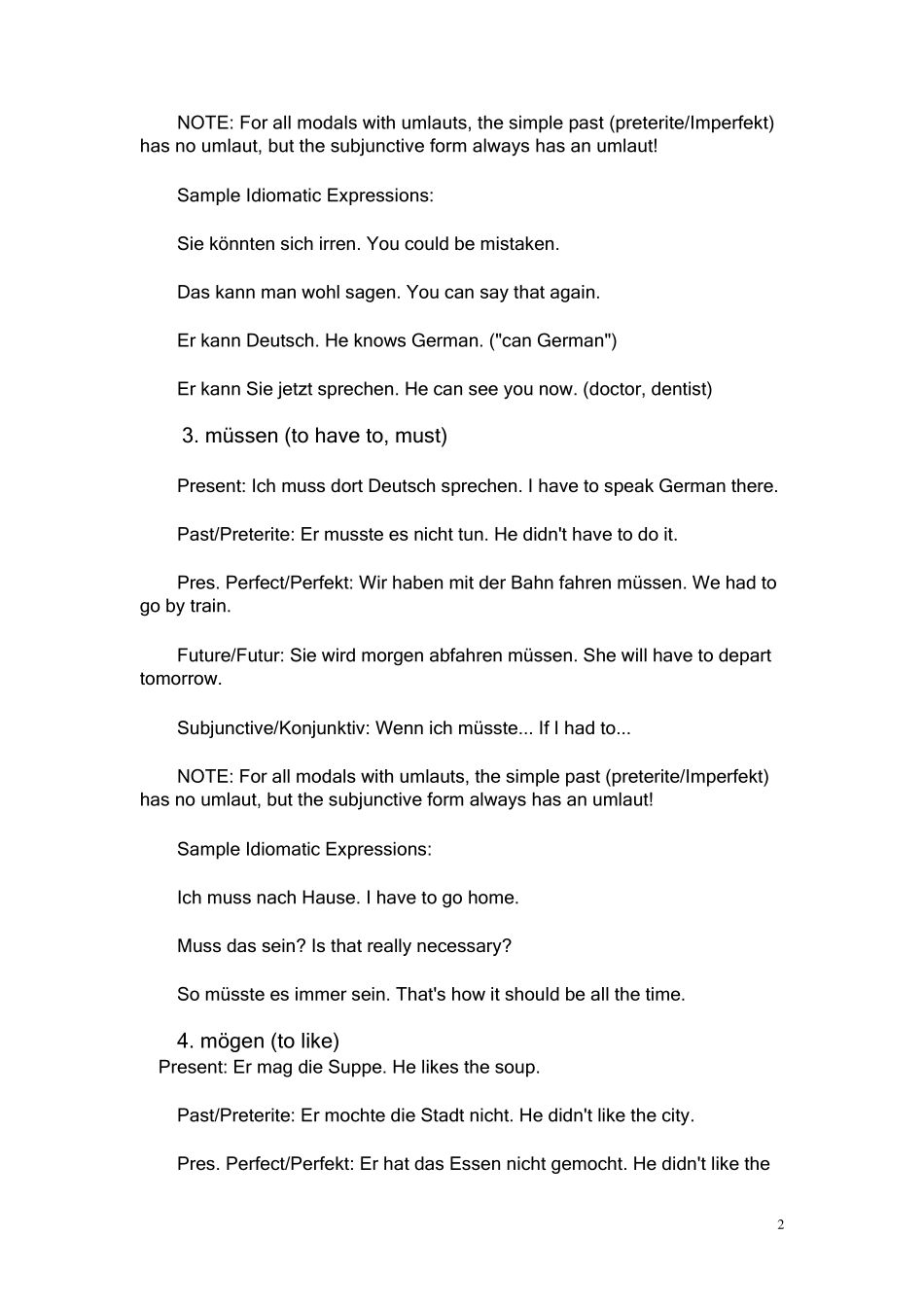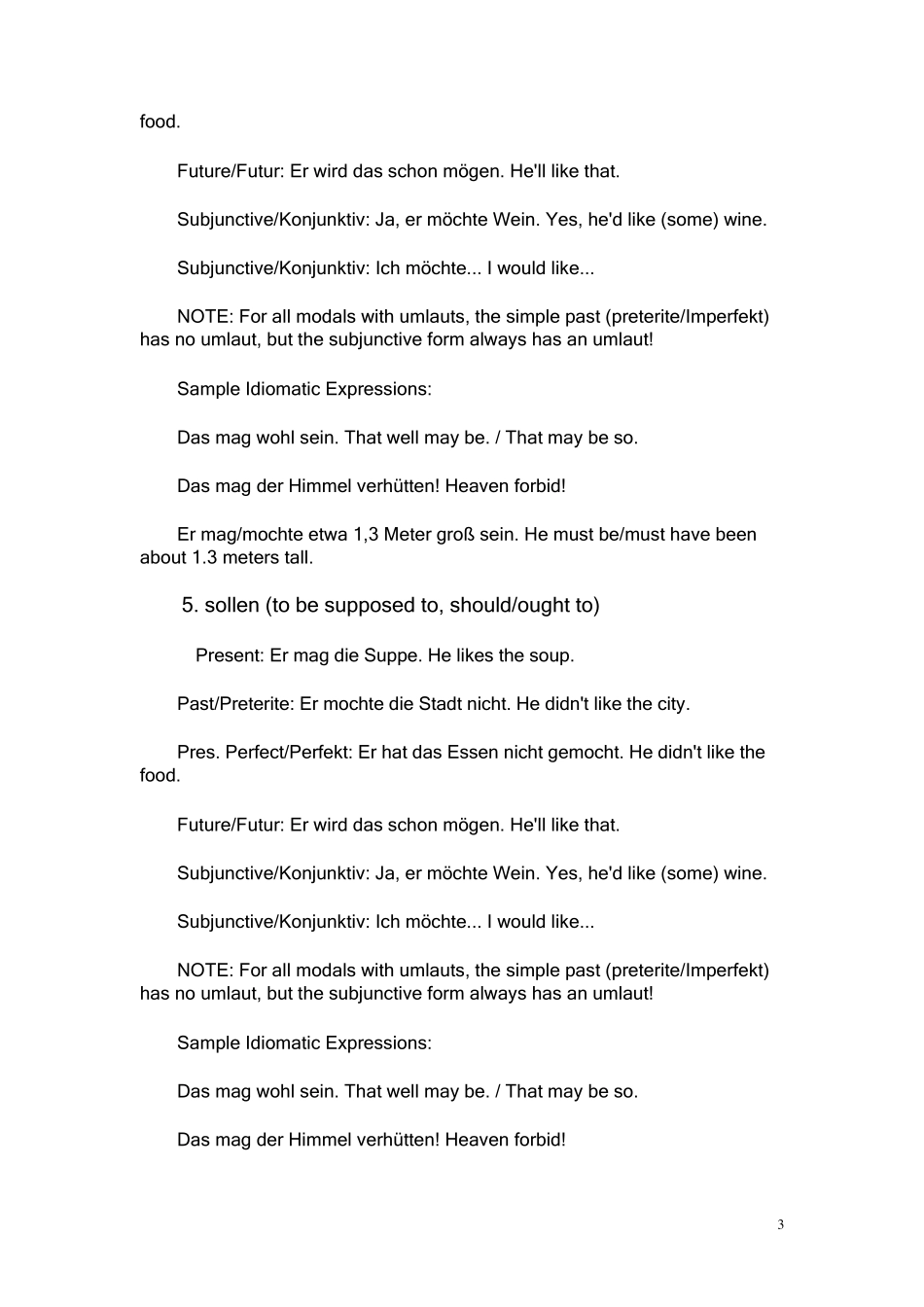1 德语情态动词用法 1. dü rfen (to be permitted, may) Present: Darf ich rauchen? May I smoke? Past/Preterite: Er durfte das nicht. He wasn't permitted to do that. Pres. Perfect/Perfekt: Er hat dort nicht parken dü rfen. He was not permitted to park there. Past Perfect/Plusquamperfekt: Wir hatten das damals machen dü rfen. We had been allowed to do that back then. Future/Futur: Wir werden das machen dü rfen. We will be allowed to do that. Subjunctive/Konjunktiv: Wenn ich dü rfte... If I were permitted... NOTE: For all modals with umlauts, the simple past (preterite/Imperfekt) has no umlaut, but the subjunctive form always has an umlaut! Sample Idiomatic Expressions: Was darf es sein? May I help you? (store clerk) Wenn ich bitten darf. If you please. 2. kö nnen (to be able, can, know) Present: Er kann gut fahren. He can drive well. Past/Preterite: Er konnte sie nicht leiden. He couldn't stand her. Pres. Perfect/Perfekt: Er hat sie nicht leiden kö nnen. He couldn't stand her. Past Perfect/Plusquamperfekt: Er hatte sie nicht leiden kö nnen. He had not been able to stand her. Future/Futur: Er wird sie nicht leiden kö nnen. He won't be able to stand her. Subjunctive/Konjunktiv: Wenn ich ihn nur leiden kö nnte... If I could only stand him... 2 NOTE: For all modals with umlauts, the simple past (preterite/Imperfekt) has no umlaut, but the subjunctive form always has an umlaut! Sample Idiomatic Expressions: Sie könnten sich irren. You could be mistaken. Das kann man wohl sagen. You can say that again. Er kann Deutsch. He knows German. ("can German") Er kann Sie jetzt sprechen. He can see you now. (doctor, dentist) 3. müssen (to have to, must) Present: Ich muss dort Deutsch sprechen...


